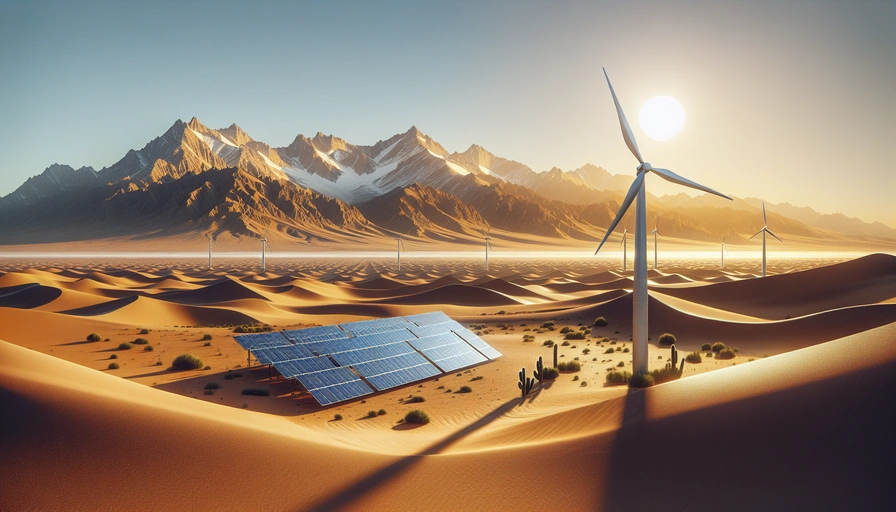Uzbekistan is making significant strides in its renewable energy sector, aiming to transform its energy landscape and meet growing demands. The country is leveraging its natural resources, such as solar and wind, to boost its power capacity and reduce reliance on traditional energy sources.
- Large industrial enterprises in Uzbekistan are set to embrace renewable energy sources, with solar power plants being constructed near 12 major pumping stations. This initiative is expected to reduce annual energy consumption by 2 billion kilowatt-hours.
- The oil and gas industry will also see the implementation of renewable energy, generating up to 600 million kilowatt-hours of electricity annually.
- By the end of the year, projects with a total annual output of 9 billion kilowatt-hours will be commissioned, with a total investment exceeding $5 billion USD.
- Uzbekistan’s installed power capacity has increased by 55% to 25 GW, with 3.5 GW coming from solar and wind energy. The country plans to increase electricity production from 84 to 135 billion kWh by 2030.
- The goal is to increase renewable energy capacity more than fivefold to over 20 GW by 2030, with regional projects including exporting green energy to Europe.
- A new renewable energy project will provide sustainable electricity to remote regions, with 300 underserved mahalla in the Tashkent Region receiving small solar photovoltaic power plants.
- The project will benefit 10,435 households and provide employment to 751 low-income families, with 4,650 kW of solar power plants installed at no cost.
- Uzbekistan plans to invest USD 5 billion in 12 solar and 4 wind power plants, plus 12 energy storage systems this year, generating approximately 9 billion kWh.
- An additional USD 7.2 billion will be invested in 11 more projects, with a focus on transitioning 18 high-energy-consuming sectors to autonomous energy supply.
In summary, Uzbekistan is on a determined path to enhance its renewable energy capacity, aiming to meet the growing energy demands of its population and economy. With substantial investments and strategic projects, the country is poised to become a leader in green energy, contributing to a sustainable future for its citizens and the global community.

Former economist at the World Bank Group and OECD. Currently serving as CEO of DEVELOPTONIA, a company that delivers an AI-powered intelligence platform transforming local data into instant actionable insights.

